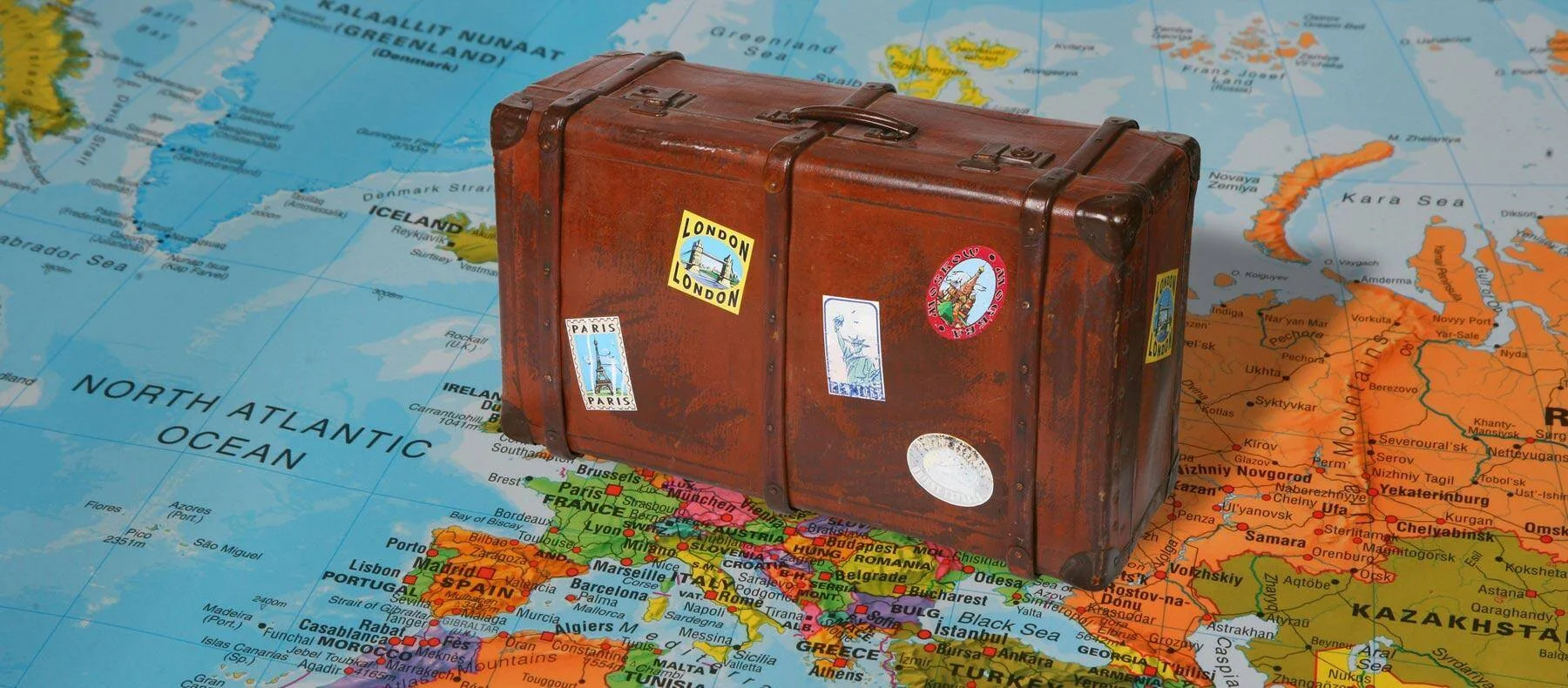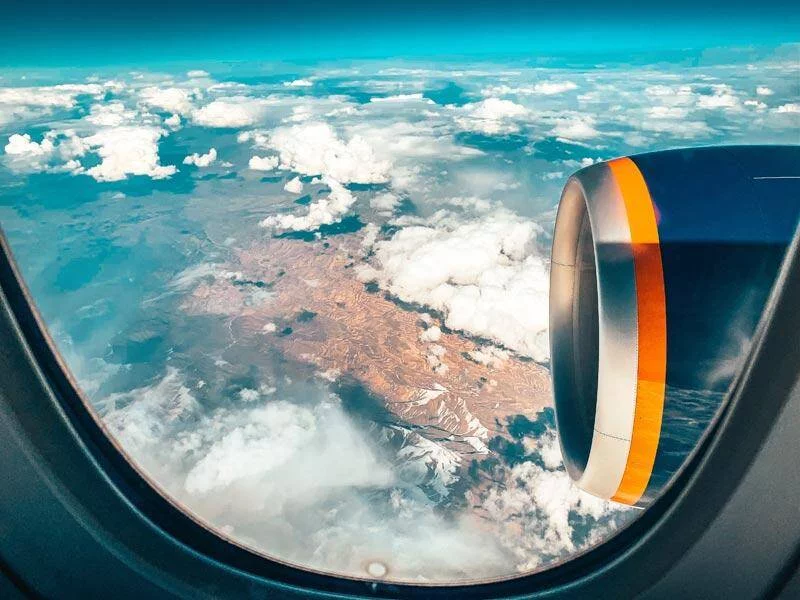- Home
- Travel news
- MICE business
- Country news
- Abu Dhabi
- Argentina
- Armenia
- Austria
- Azerbaijan
- Australia
- Bali
- Baltic
- Belgium
- Bolivia
- Botswana
- Brazil
- Budapest
- Cambodia
- Canada
- China
- Chile
- Colombia
- Costa Rica
- Croatia
- Cyprus
- Czech Republic
- Dubai
- Ecuador
- Egypt
- Finland
- France
- Germany
- Greece
- Hong Kong
- Iceland travel news
- India
- Ireland
- Israel
- Italy
- Japan
- Jordan
- Kazakhstan
- Kenya
- Lebanon
- Malaysia
- Malta
- Mauritius
- Mexico
- Montenegro
- Morocco
- Namibia
- Netherlands
- New Zealand
- Oman
- Panama
- Peru
- Poland
- Portugal
- Russia
- Qatar
- Saudi Arabia
- Scandinavia
- Scotland
- Senegal
- Serbia
- Singapore
- Slovenia
- South Africa
- Travel news South Korea
- Spain
- Switzerland
- Travel news Tanzania and Zanzibar
- Thailand
- Tunisia
- Turkey
- Ukraine
- United Kingdom
- USA
- Uzbekistan
- Vietnam
- West Africa
- Zambia and Zimbabwe
- Useful links
- Sports events calendar
- Contact/contribute

Latest Travel advice Cambodia
- China Eastern Launches Exciting New Adelaide to Shanghai Flights from June 2026
- SAS expands long-haul network with new Dubai, Phuket and Krabi Flights for Winter 2026/27
- Pegasus Airlines adds Ljubljana to network with exciting direct Istanbul flights 2026
- Etihad launches exciting first nonstop Abu Dhabi – Calgary route 2026
- easyJet Looks at Summer 2026 and Says: “More Sun, More Pasta, Please”

August 3, 2021: Information on entry restrictions, testing and quarantine regulations in Cambodia
Published 27.07.2021
1. All visa exemptions, visas on arrival and e-visas are suspended.
– This does not apply to passengers with a diplomatic visa (Visa A) or an official visa (Visa B) issued by Cambodia.
2. Passengers must have a printed negative COVID-19 PCR test result issued at most 72 hours before departure from the first embarkation point. The test result must be in English.
3. Passengers must:
– obtain a health insurance policy issued by “FORTE” with a minimum medical coverage of USD 50,000. The insurance can be obtained at www.forteinsurance.com/covid-19-insurance; and
– deposit USD 2,000 at a designated bank on arrival.
This does not apply to:
– nationals of Cambodia;
– passengers with a diplomatic visa (Visa A) or an official visa (Visa B) issued by Cambodia;
– nationals of Cambodia with a foreign passport and a Visa K entry permit issued by Cambodia;
– passengers traveling on business with a âValidation Application on Payment Guarantee/Invitation” (VAPGI).
4. Passengers are subject to a COVID-19 test upon arrival and quarantine for 14 days.
Detailed Tourist Information
Foreigners are now allowed to visit Cambodia but must comply with a long list of regulations.
All foreign visitors:
Need to have a certificate no more than 72 hours old confirming that they are not infected with the novel coronavirus.
Will be given an on-site PCR swab test.
Must have proof of $50,000 worth of travel insurance while in Cambodia.
Must quarantine for 14 days after arrival at a place designated by the government.
In addition, Cambodia has instituted a visitor-pays system of testing:
All visitors must pay for a COVID-19 test and associated expenses upon arrival in Cambodia.
Visitors must also make a $2,000 deposit to cover potential costs of quarantine, hospitalization, and even burial, should they fall ill with coronavirus while in the country.
Should the test come back positive for even one person on a flight:
All passengers from the flight will be quarantined in a state facility at their own expense.
If hospitalization is required, that will also be at the visitor’s expense.
It is currently not possible to enter or depart Cambodia through land borders as the Cambodia-Laos, Cambodia-Thailand and Cambodia-Vietnam land borders are closed.
As the number of new coronavirus cases continue to surge in both India and Cambodia, travellers from India have been banned by the Cambodian government.
Lockdown Details
On December 21, 2020, the Cambodian Ministry of Health announced the following guidelines:
1. The public is directed to wear masks, use hand sanitizers and practice social distancing.
2. Shops, restaurants, cafeterias, supermarkets, banks and other commercial areas must require customers to wear masks, use hand sanitizer, and engage in social distancing.
3. The public is directed to avoid close contact with others, remaining in closed air-conditioned rooms, and gatherings of more than 20 people to minimize community transmission.
4. Individuals who are unwell and suspect they are may have COVID-19 must seek consultation by calling 115 or visiting a designated government hospital.
On March 20, the Cambodian government announced comprehensive closures to include all public and private educational institutions at all levels throughout the country. Additionally, there is a nation-wide temporary suspension of cinemas, art theaters and museums. Authorities have also closed certain businesses and buildings in response to the current outbreak (known as the “February 20 incident”). In-person dining at restaurants, coffee shops, and food service stores, as well as all sales of alcohol have been suspended in locations under curfew and lockdown measures. On March 23, the Cambodian government mandated the wearing of masks in geographic areas where there is an outbreak of COVID-19 in the community as determined by the Ministry of Health. As of April 14, these geographic locations include Phnom Penh and the provinces of Preah Sihanouk, Kandal, Prey Veng, Siem Reap, and Svay Rieng. Please refer to announcements by the relevant Cambodian government officials for specific details.
Certain cities and provinces have implemented curfews. These curfew measures suspend in-person restaurant and food stall service and forbid most types of gatherings and travel within the city during curfew hours. Exceptions to restrictions during curfew hours include travel for emergency medical need, gatherings with family members, and travel for work for those businesses permitted to remain open.
Cambodian authorities have imposed lockdown measures for certain areas designated as “Red Zones,” “Dark Yellow Zones,” or “Yellow Zone
“Red Zones” are subject to the following restrictions:
-All individuals within the “Red Zones” must not leave their residence, except for medical emergencies, for COVID-19 testing as directed by the relevant authorities, or to receive a second dose of the COVID-19 vaccine as determined by the relevant authorities.
-All markets, food sales, work and business activities are suspended except for a limited number of emergency and other services as determined by the authorities.
-The Ministry of Commerce is responsible for transporting food and water to residents within the “Red Zones.”
-Travel through these “Red Zones” is not permitted.
“Dark Yellow Zones” are subject to the following restrictions:
-All individuals within the lockdown areas must not leave their residence for the duration of the lockdown period, with some exceptions.
-Certain essential businesses may remain open despite the lockdown, but may be subject to stricter requirements, such as minimizing their staffing to no more than 2%.
-For those traveling to work in essential businesses allowed to remain open during the lockdown, a travel permit from the “Executive Committee to Manage and Lead the -Implementation of the Lockdown” is required in addition to an ID and employment certificate.
-Up to two individuals per household are permitted to leave their residence to purchase food from the nearest shop in their neighborhood, but may do so no more than three times a week and must have a valid form of identification with them.
-Groups of up to four people may travel to seek medical care within or outside the lockdown area, but require permission from the local authorities.
-Travel for COVID-19 testing or vaccination as determined by the relevant authorities is permitted.
-Individuals are permitted to leave their residence to exercise outdoors in the nearby vicinity of their home, but are limited to groups of no more than two persons.
-Officials of diplomatic, UN, and international finance organizations are permitted to travel, but must present their employment and identity documents. They may be accompanied by a Cambodian driver.
-In addition to an ID and employment certificate, journalists must present travel permits issued by the Ministry of Information.
-Travel from “Dark Yellow Zones” to “Yellow Zones” for the above purposes is permitted.
-Travel and business activities permitted under the lockdown measures are prohibited between 8:00 p.m. and 3:00 a.m. except in emergencies and other limited instances.
“Yellow Zones” are subject to the following restrictions:
-All businesses are permitted to operate, except for schools and entertainment businesses (such as karaoke, beer gardens, clubs, discos, resorts and parks, massage, liquor stores, cinemas, theaters, museums, gyms, and sport centers).
-Private meetings or gatherings must not exceed more than ten people, with limited exceptions. All gatherings must adhere to health and safety measures.
-All gatherings involving alcohol are prohibited.
-Travel from “Yellow Zones” to “Dark Yellow Zones” is limited in accordance with “Dark Yellow Zone” restrictions.
-Travel and business activities permitted under the lockdown measures are prohibited between 8:00 p.m. and 3:00 a.m. except in emergencies and other limited instances.
Travel to the airport is permitted with identification and travel documents (such as flight tickets).
Certain areas in Phnom Penh have been designated as “Yellow Zones” (effective through July 7). While there are no areas designated as “Red Zones” in Phnom Penh, individual buildings may be designated as subject to stricter lockdown measures. Non-designated areas permit in-person dining and are not subject to curfew measures, but prohibit gatherings of more than 15 people and prohibit certain “high-risk” businesses (such as schools, bars and other entertainment businesses, museums, resorts, massage parlors, cinemas, theaters, gyms, and sports centers), effective until July 3.
Cambodian authorities have also announced lockdown measures and zone designations for Stung Treng (effective through July 8), Kep (effective through July 5), Ratanakiri (effective through July 4), Preah Sihanouk (effective through July 4), Banteay Meanchey (effective through July 10), and Siem Reap (effective until July 10) subject to the aforementioned restrictions. Stung Treng, Kep, Ratanakiri, Preah Sihanouk and Banteay Meanchey have further extended their curfew restrictions to apply between 8:00 p.m. and 5:00 a.m, whereas Siem Reap has extended their curfew restrictions to apply between 8:00 p.m. and 4:00 a.m. (not 3:00 a.m.). Please refer to announcements by the relevant local authorities for the latest updates on specific zone designations.
Sources
https://www.cathaypacific.com/cx/en_US/covid-19/worldwide-travel-restrictions.html
Data Source: covidcontrols.co
Travel advice Cambodia
For more travel advise on other countries
Want to travel to Cambodia?

More about our Facebook Group
Table of Contents

Private Facebook group
for the travel industry
Travel Talks Platform Group
5.8k members
Travel Talks Platform for the travel industry
Follow the travel news – Traveltalksplatform is the number 1 news site to stay updated on amazing travel facts, the latest news, events, incentive ideas, MICE news, job opportunities and shows.
Specially composed for the travel industry, you will find the latest travel facts at your fingertips.

The latest airline news, hotel news, cruise news and MICE news in your inbox:
Stay updated about
the latest travel news worldwide
Copyright © 2021 e-motions international
disclaimer:
We assume no responsibility or liability for any errors or omissions in the content of this site. The information contained in this site is provided on an "as is" basis with no guarantees of completeness, accuracy, usefulness or timeliness.